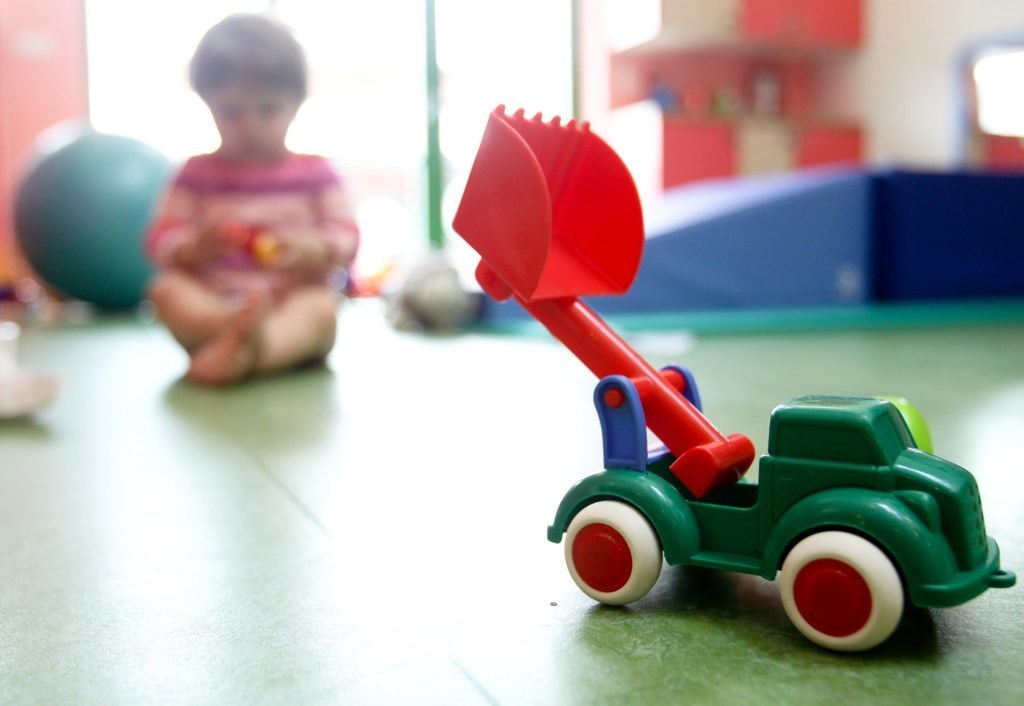Just before my daughter’s first birthday, I found myself struggling to make the transition from stay-at-home mum to self-employed. I sought out a counsellor to help me work through some of my concerns. ‘Just put her in a crèche’, she said.
What is Belgium’s obsession with this one-size-fits-all approach to childcare?
I was already aware of the Belgian tendency towards early daycare. When announcing our pregnancy to friends, congratulations were followed with questions about which crèche we had chosen. It was a shock to me that people expected I would return to work when my baby was just three months old. With only 15 weeks of paid maternity leave, Belgium is well below the EU average of 22 weeks.
The expectation is that mothers work and babies go to daycare. Apparently it is such an important norm, there was even a question about women and work on the Belgian social integration exam I was required to take when I moved here. With such a high dependency on the system, and the need to register before your baby is even born to ensure a place, the crèche must be a good solution, right?
In fact Belgium ranks 21 out of 41 on childcare quality in rich European countries, according to a recent report from Unicef.
Crèches in Belgium are regulated by either ONE or Kind en Gezin. These organisations set the standards for childcare, endorse crèches and even prescribe what food babies should eat at each age. They are the reason why your paediatrician probably recommends that you feed your little one 200 grams of pureed vegetable at midday.
Although to my mind the weaning guidelines are a little restrictive and out of sync with baby-led approaches in other countries, I do think it is responsible to help parents plan a healthy diet for their children. It came as a surprise to me, therefore, when friends in both Brussels and Flanders reported that their respective babies under one were being offered bread with jam, Nutella and speculoos in crèches endorsed by these organisations.
Why do we have this lower standard of childcare in Belgium?
A big influence on quality is the child to carer ratio. In Flanders there is a maximum of 9 children at a time per crèche staff member. That is a little higher than French speaking crèches, but a lot higher than the UK which caps the ratio at four, according to 2019 European Commission statistics. That is a lot of babies to look after on your own if you work in a Belgian daycare centre.
These conditions have an impact on high staff turnover, which does not bode well for delivering quality childcare. VDAB, the Flemish Service for Employment and Vocational Training, reports that there were 4,243 vacancies for the role of Childcare Supervisor in Flanders in between November 2020 and October 2021. At the end of October, over 700 of those vacancies were still not filled.
What about alternatives like regulated home-based child-care? Flanders has the highest ratio of children per carer in Europe for this type of care. Hardly an attractive alternative. Babysitters are always an option, albeit an unregulated one. Family support is helpful if you have it. As an expat, isolated by COVID and still unable to introduce my daughter to her family in my home country after one year, I feel that I have not been left much choice about my role as stay-at-home mum. Others may be in positions where they do not have much choice about returning to work.
So it seems that we as parents are dammed if we do, dammed if we don’t. And when choices are limited, perhaps it is easier to follow the advice the counsellor gave me: jump on the bandwagon. Indeed, the demand for childcare in Belgium is high and with pressure on both parents to work, the crèche offers an easy-fix.
The Brussels Times recently reported on legislation that plans to create 258 daycare centres, subsidised by Flanders. Funding for childcare is going towards creating new places to fill demand, rather than addressing quality.
Within this cycle, the crèche remains something sought after, something we need. My partner and I are privileged that I have been able to stay at home and care for our daughter for so long. Many other families do not have that luxury or simply do not want to be stay-at-home parents, and therefore accept this lower standard of care by necessity.
Belgium’s obsession with finding a place in a crèche needs to stop, and we need to start talking about childcare quality and real choices for parents. Improving parental leave will reduce dependency on this system. Training for childcare workers and lowering the child-to-carer ratio will help staff retention and improve childcare quality. As long as childcare in Belgium remains understaffed and underfunded, our choices as parents remain limited.


